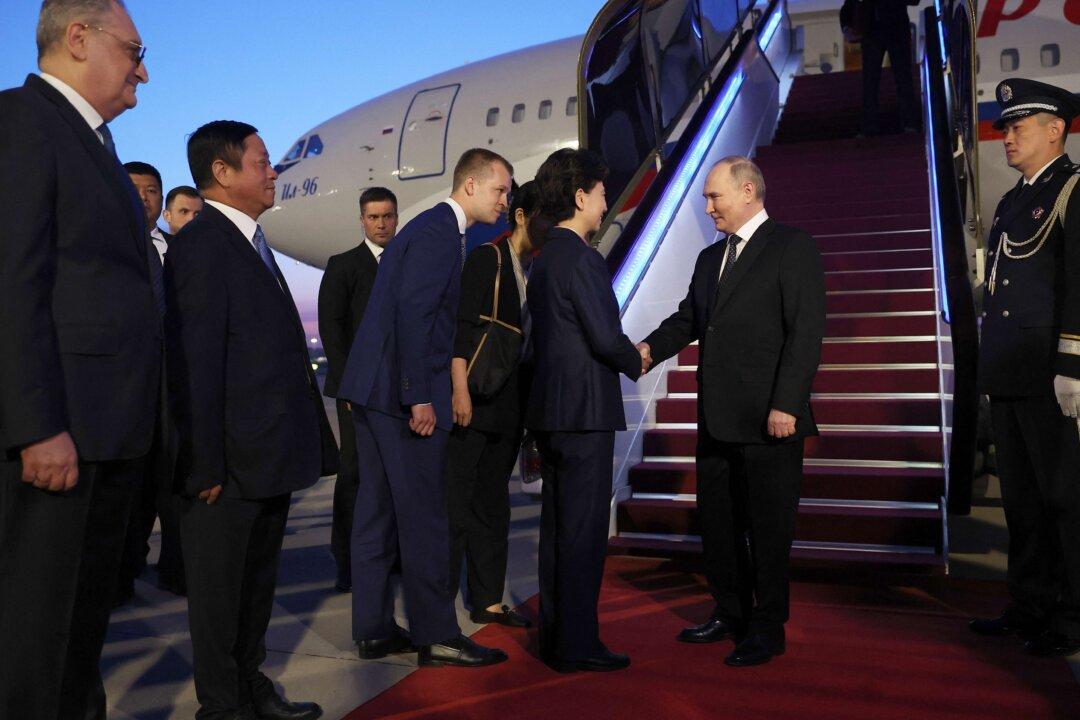Commentary
Russian President Vladimir Putin’s visit to Chinese communist leader Xi Jinping’s People’s Republic of China (PRC) in mid-May is notable, first, for the declaratory statements that they conveyed to the world.

Russian President Vladimir Putin’s visit to Chinese communist leader Xi Jinping’s People’s Republic of China (PRC) in mid-May is notable, first, for the declaratory statements that they conveyed to the world.